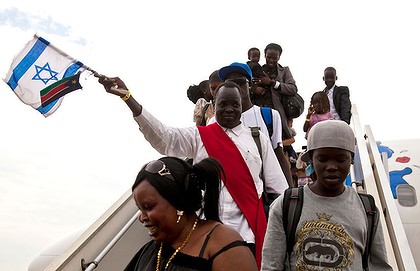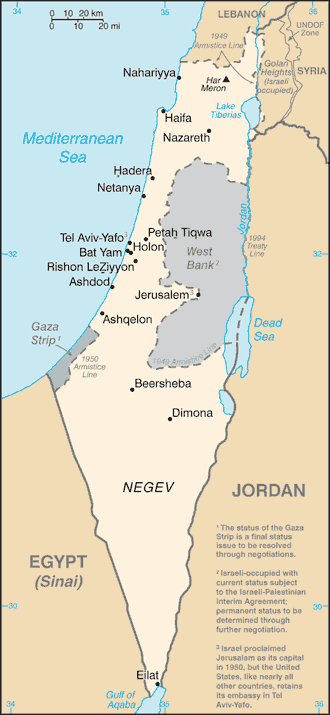Israel to extradite 15,000 Sudanese asylum seekers
By Toby Collins
October 5, 2012 (LONDON) – Israel’s interior minister Eli Yishai said on Wednesday 15,000 Sudanese asylum seekers will be detained from October 15, claiming they are not refugees; something which the UN refugee agency (UNHCR) disputes.

Israel does not have an extradition treaty with Khartoum’s pro-Iran government. The Sudanese asylum seekers must therefore leave Israel of their own free will.
According to Hotline for Migrant Workers, those being detained include genocide survivors from Darfur.
Eritrean asylum seekers are also to be deported. Asmara has already stated that it does not want them back.
After the second intifada, when Israel began the construction of the wall in the West Bank in 2000, work permits for Palestinians were retracted. This created a deficit of cheap manual labour. A relaxing of regulations for immigrants from other countries was Tel Aviv’s solution.
 Powerful voices in Tel Aviv currently suggests that asylum seekers and more specifically those from Africa are perceived as a threat to the religious and cultural sovereignty of Israel.
Powerful voices in Tel Aviv currently suggests that asylum seekers and more specifically those from Africa are perceived as a threat to the religious and cultural sovereignty of Israel.
Despite the animosity between Israel and Palestine more work permits are now being granted to Palestinians, while efforts are made to extradite Africans have increased. Despite the cross-border animosity, Palestinians are clearly seen as less of a threat to the cultural hegemony of Israel than Africans.
The political climate in Israel is currently conducive to racist rhetoric; the global economic crisis is putting pressure upon Israel, as it is with all the world’s countries, and inspires a search for culpability.
 In Israel there are some conspicuous expenses being outlaid. This has led people to recently take to the streets of Tel Aviv, to protest about the hardship they are suffering while Orthodox Jews are given state-backed accommodation and education.
In Israel there are some conspicuous expenses being outlaid. This has led people to recently take to the streets of Tel Aviv, to protest about the hardship they are suffering while Orthodox Jews are given state-backed accommodation and education.
The government then changed military service regulations to include, amongst others, Orthodox Jews. However, this, as well as the attack upon asylum seekers, is seen by many as spinning plates while backstage, the economic fragility of the state is pondered.
Controversy surrounded Israel’s decision in August that 100 asylum seekers with documentation proving their original nationality is Sudanese, will be sent to South Sudan, with whom Israel has an extradition treaty.
Why this is the right moment to make this shift in rhetoric is a matter of dispute. However, globally pseudo-racist anti-immigration rhetoric is en vogue; immigrants are the perfect scapegoat in an economic crisis: see the current rise of fascist party in Greece.
(ST)

